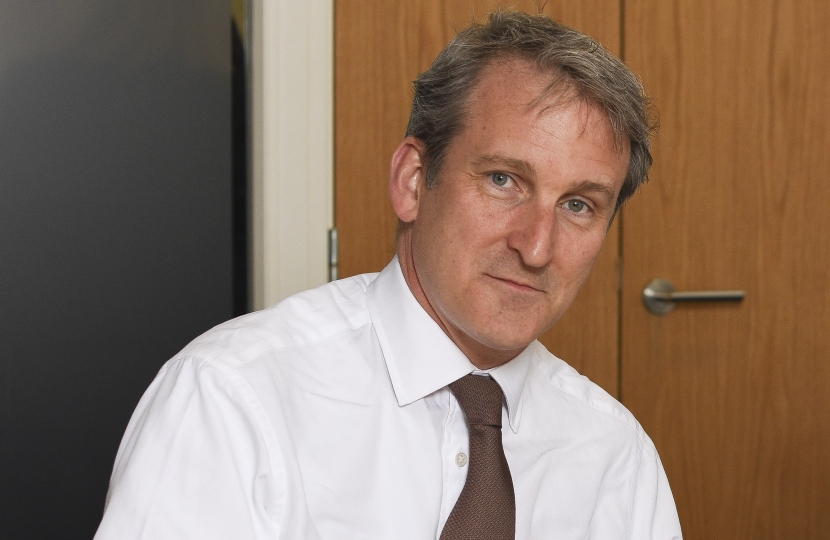
This article was written by Damian and published in this week's Petersfield Post and Herald editions:
"For many, it was a very emotional moment when the news came through that the first Covid vaccine had been licensed. For many of course who have lost loved ones to this disease, it was not soon enough. It was also the signal that there will be an end to this, and it is starting to come into sight.
The Pfizer-BioNTech vaccine is the first to be approved by the UK’s Medicines and Healthcare Products Regulatory Agency (MHRA). But others from Moderna and Oxford/AstraZeneca are also close to completing their clinical trials.
So research and trials continue, on those and other potential vaccines. I had the opportunity last week to visit the Hampshire Research Hub at Royal South Hants Hospital in Southampton, and meet the team involved in running their Covid-19 vaccine trials – and some of the volunteers who have stepped up to take part. It was an impressive operation.
People may wonder why there needs to be more than one. It may prove that different types are more effective for different age groups than others, for example. Some will be easier to produce and distribute. The one from Pfizer-BioNTech for instance needs to be stored below -70 degrees, but the Oxford-AstraZeneca one can be kept more easily. That matters for where and how they are distributed.
Indeed, around the world over 100 separate vaccines have been in trial. The scale of collaboration is truly global. But then of course, covid-19 is a truly global battle.
The speed with which these vaccines have been developed has only been possible because of previous decades of scientific endeavour and progress. A number of the approaches had already been in test before the outbreak, for other applications, and the size of these trials are in many cases much larger than those done in previous vaccine developments.
Vaccine approvals cannot have shortcuts. The MHRA has been using a regulatory process known as a ‘rolling review’, which can complete the assessment of a promising medicine or vaccine during a public health emergency. Expert scientists and clinicians have been reviewing live data from laboratory pre-clinical studies, clinical trials, manufacturing and quality controls, product sampling and testing of the final vaccine and also considering the conditions for its safe supply and distribution.
And of course, the scale of operation required to deliver this vaccination programme is enormous. Multiply this effort across the world and it is a logistical challenge without parallel.
Although the UK is the first to start a vaccination programme, it will take many months to reach everyone and a level of protection within the population that can prevent its transmission. There is also the opportunity to eradicate the virus, but only if the virus is prevented from circulating across the globe and developing more seasonal variants.
The UK has also committed up to £548 million to COVAX, a WHO-backed international collaboration to accelerate the development, production and equitable access to covid-19 tests across the world, and it is important that we continue to support a multilateral solution to this global challenge.
The next, immediate challenge is an informational one. People are understandably hungry for information about the vaccination programme and everything around it.
In the early stages of Covid in particular, there was a huge amount of misinformation swirling around on social media, especially on Facebook and, increasingly, via WhatsApp. And unfortunately, even long before Covid, vaccination has been an area especially prone to misinformation, and no doubt that will feature again. It is vital that there is openness and that scientific examination and discussion is unhindered. It is also vital that demonstrably untrue claims are not allowed to hinder the battle against the virus. In parliament, our select committee has started an inquiry on this subject, and we’ll be holding the social media companies to account.
Both YouTube and Facebook had said they will take action against the spread of misinformation about coronavirus vaccines. Obviously the key thing for us all is to assess information sources carefully, verify them if necessary – and especially to pause and consider before we share posts. www.nhs.uk is always a good go-to source."


